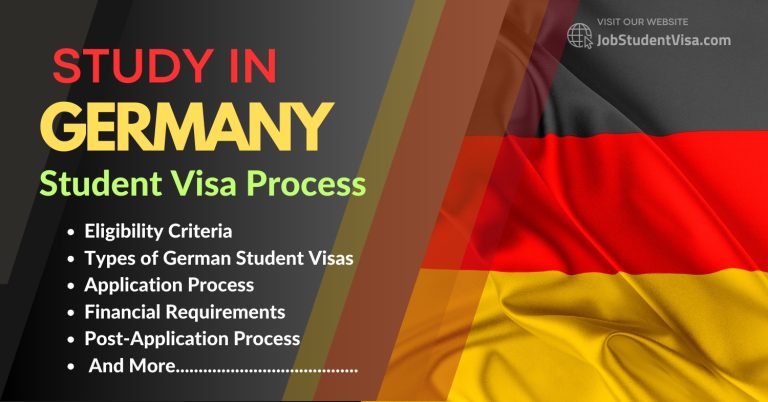Exploring the Part-Time Work Policy for International Students in Denmark: Key Insights and Guidelines
Denmark, renowned for its exceptional education system and student-friendly atmosphere, offers a unique opportunity for international students to engage in part-time work alongside their studies. This comprehensive guide delves into the crucial aspects of the Part-Time Work Policy for International Students in Denmark. We provide essential information on eligibility, work permits, and the practicalities of balancing work with academic commitments. Whether you’re from the EU/EEA or beyond, understanding these policies is vital for making the most of your educational journey in Denmark. Our guide aims to equip you with the knowledge needed to navigate the Danish job market, ensuring a rewarding and enriching experience while studying in this vibrant country.

Overview of Part-Time Job Opportunities in Denmark
Diversity of Job Roles
International students in Denmark have access to a variety of part-time job opportunities that can complement their studies and life experience. The most common sectors offering part-time jobs include hospitality and tourism, language teaching, sales and customer service, and office and administrative roles. These positions not only provide financial benefits but also a platform for students to enhance their interpersonal and professional skills.
Potential Earnings
The financial aspect of part-time jobs is a significant consideration for students. In Denmark, part-time job wages vary depending on the nature of the work. For example, a bartender might earn around DKK 115.63 per hour, while a sales assistant could earn DKK 166.00 per hour. These wages can be a substantial aid in managing living expenses for students.
Read Also:
Legal Framework and Work Permit Requirements
EU/EEA and Swiss Citizens
Students from the EU/EEA and Switzerland enjoy the benefit of working in Denmark without restrictions on the number of hours. This is part of the broader EU regulations facilitating the free movement of people and services.
Non-EU/EEA Students
For students coming from outside the EU/EEA, the Danish government allows part-time work of up to 20 hours per week during the academic year and full-time during the summer months. To be legally employed, these students must obtain a work permit. This permit is often included in the residence permit application, ensuring a streamlined process for international students.
Tax Obligations
All students working in Denmark are subject to income tax. The tax system mandates that students apply for a Danish tax card, ensuring compliance with local tax regulations. This card outlines the amount of tax due based on the individual’s annual income.
Work Policy During Semester Break in Denmark
In Denmark, the semester breaks, particularly the summer months of June, July, and August, offer a pivotal opportunity for international students, especially those from outside the EU/EEA, to engage in full-time employment. This period allows students to delve deeper into the Danish work culture, enabling them to gain valuable and extensive hands-on experience in a variety of job sectors. It’s an opportune time for students to not only boost their income but also to integrate more thoroughly into the local community.
These months can be utilized for exploring a range of employment opportunities, from hospitality and retail to internships relevant to their field of study. It’s a chance to build a robust professional network, crucial for future career prospects. Moreover, this experience is beneficial for developing practical skills and understanding the work ethics and dynamics in Denmark.
Full-time work during semester breaks also provides a cultural immersion, allowing students to improve their language skills and understand the societal norms and practices of Denmark. This comprehensive exposure contributes significantly to both their personal growth and professional development, enhancing their overall educational experience in Denmark.”
Job Search Strategies and Resources
Online Job Portals
There are several online job portals like Jobindex, Stepstone, Graduateland, and others, which serve as effective platforms for job searching. These portals list various job opportunities across multiple sectors, suitable for students with different skill sets and preferences.
Utilizing University Resources
Many educational institutions in Denmark offer career centers or online job banks specifically designed to help students find part-time work. These resources are tailored to the student community and often list jobs that are compatible with academic schedules.
Application Process and Interview Preparation
Resume and Cover Letter Customization
Creating a tailored resume and cover letter for each application is crucial. These documents should highlight the student’s relevant experiences and skills that align with the job requirements. It’s important to research the organization to understand its values and mission, which can be reflected in the application.
Interview Techniques
It’s crucial for students to grasp the subtleties of job interviews in Denmark. Preparation involves researching frequently asked questions and rehearsing answers. Being on time and dressing appropriately is key, along with being prepared to talk about language skills and the ability to adapt in a diverse cultural setting.
Adapting to the Danish Work Culture
Challenges and Adjustments
International students may find the Danish work culture unique, with its emphasis on equality, collaboration, and work-life balance. Adapting to this environment can be challenging but also rewarding, offering insights into a different way of professional life【8†source】.
Opportunities for Growth
Part-time work provides a platform for students to build a professional network and gain valuable work experience. It’s an opportunity to immerse in Danish culture and learn the language, which can significantly enhance future career prospects.
Importance of Adhering to Legal Work Limits
Consequences of Overworking
It’s crucial for non-EU/EEA students to adhere to the 20-hour work limit per week. Overstepping this limit can lead to serious legal consequences, including the revocation of the residence permit and potential deportation. Employers who allow students to exceed these hours also face penalties.
In summary, part-time work in Denmark for international students presents a blend of opportunities and challenges. While it offers financial support and a chance to integrate into Danish society, it also requires understanding and adherence to the legal framework. With the right approach and resources, part-time work can significantly enhance the overall study experience in Denmark.






